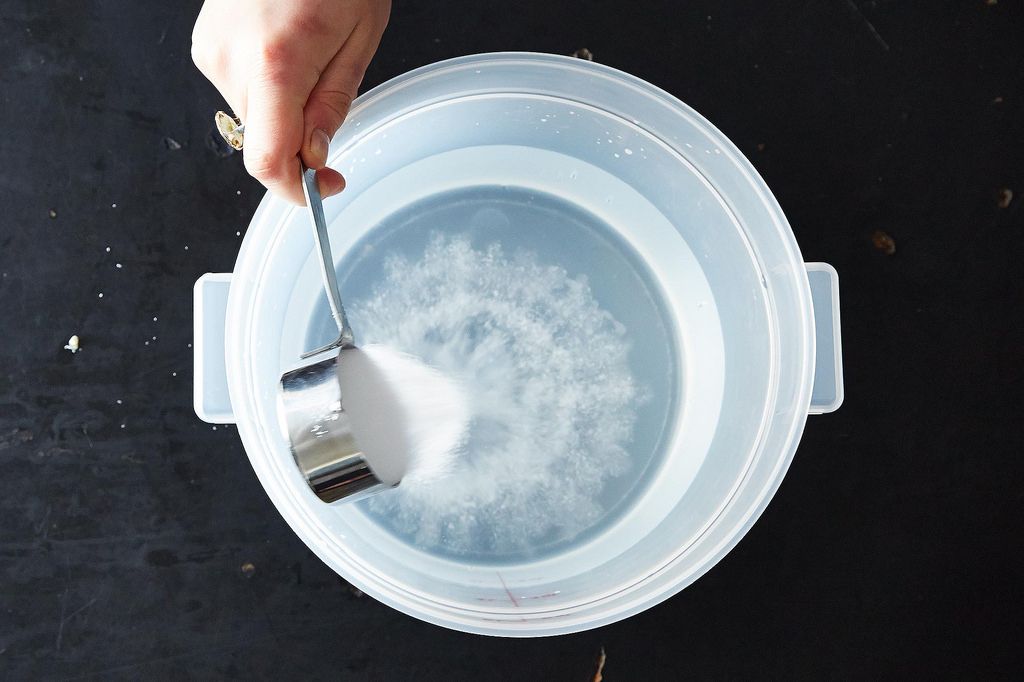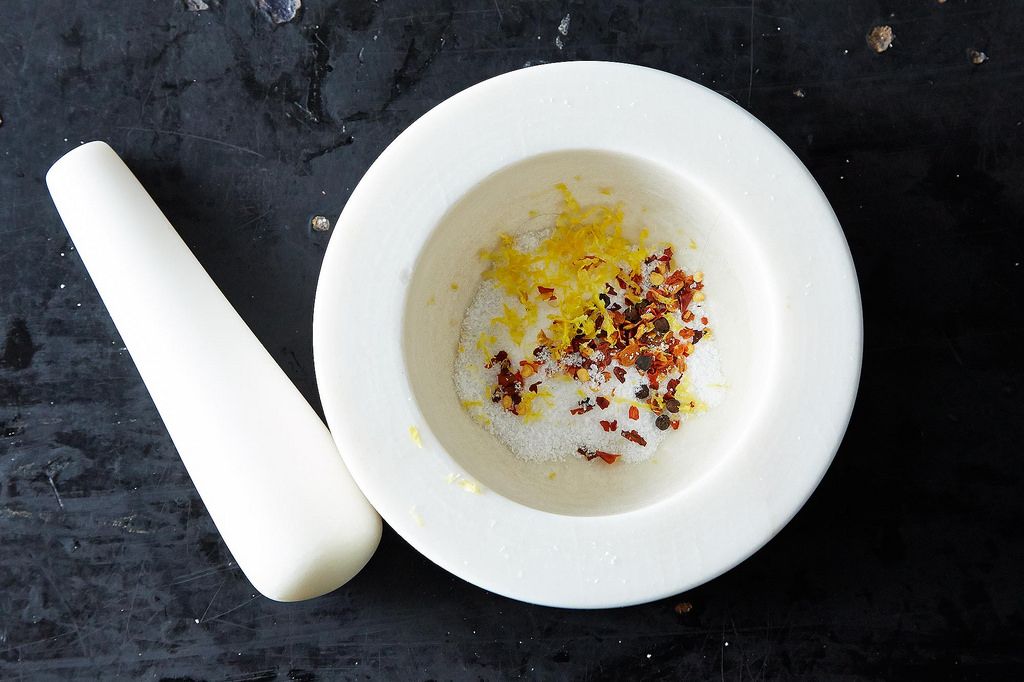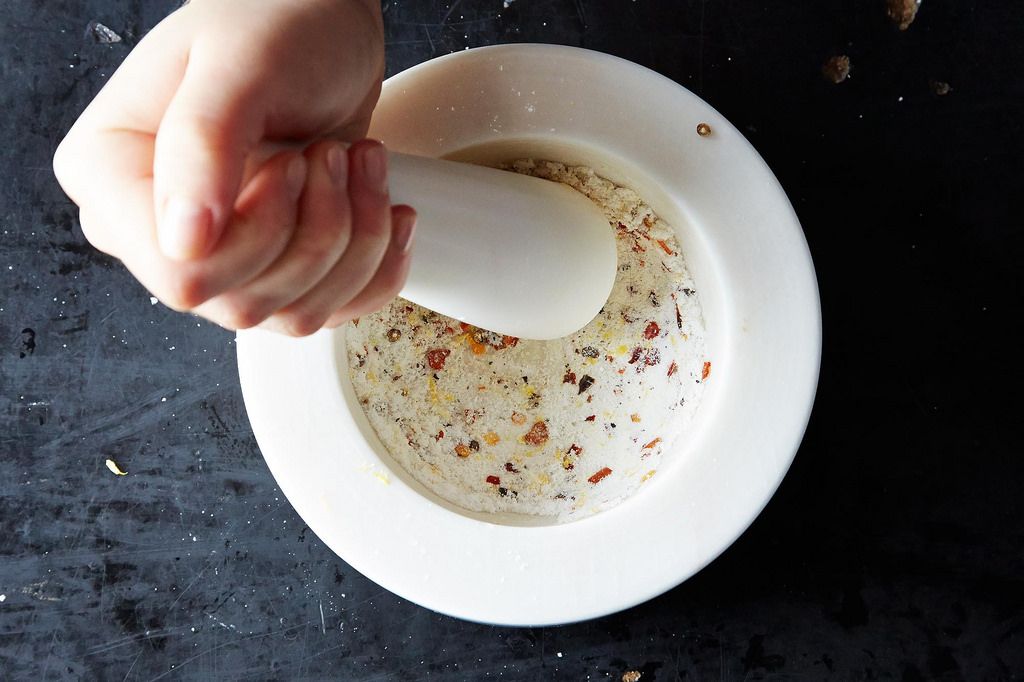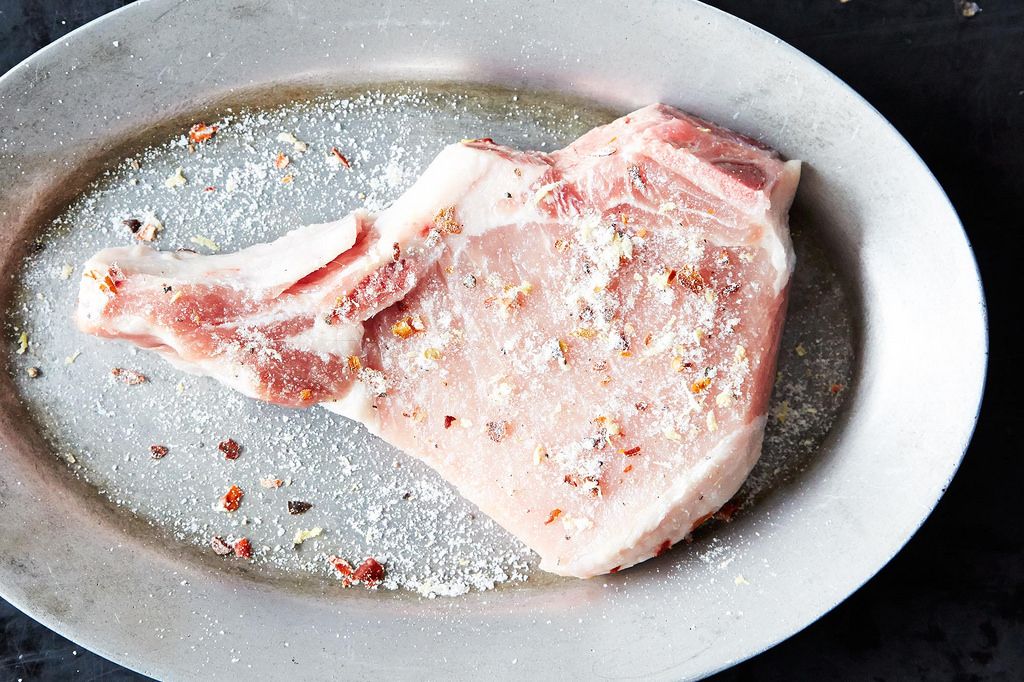Meat
How to Brine Meat—& Why You Should Bother
The only other question is...are you team wet brine or dry brine?
Photo by Julia Gartland
52 Days of Thanksgiving

52 Days of Thanksgiving
Top-notch recipes, expert tips, and all the tools to pull off the year’s most memorable feast.
Check It OutPopular on Food52
50 Comments
drsmith1
July 8, 2021
This recipe or technique is pretty much Kosher meat. The techniques purpose is to draw out the animals left over blood. I have used the technique for chicken and turkey. The technique does result in a crispy exterior and tender interior. I will try the technique to see if it takes 'cheap' meat and makes its more tender. As far as the alt brine ripping up or breaking tough tendons in the steak...I tend to think that it does not.
navarro1950
May 6, 2021
This is more than a question than a comment.
I’m all for bringing but , what about people that
suffer from high blood pressure using so much salt ?
If you reduce the amount of salt will this have some what
the same effect on the meat ?
I’m all for bringing but , what about people that
suffer from high blood pressure using so much salt ?
If you reduce the amount of salt will this have some what
the same effect on the meat ?
Cookinggranny
December 11, 2020
I watch MeatEater, and even in the field he brines! So, I am going to give it a try. Totally new to brining, but what he was cooking just looked so delicious and tender, can’t not brine! Any ideas on brine recipes?
Suzanna
Suzanna
Owen P.
May 13, 2020
If a recipe says make up a salt solution of 300g in 1.5 litres but your bowl can only hold 1 litre, should you make up a brine of 200g in 1 litre or is it important to use 300g of salt regardless.
G35Craig
October 2, 2019
Soaking meat in brine is not osmosis. Quite the opposite. Osmosis occurs when a solute (water) passes from a low concentration to a high concentration of salt. Brining is a diffusion process. If it was osmosis the water in the meat would move into the concentrated brine and dry the meat. Chemistry 11.
Henry C.
November 27, 2019
Osmosis occurs when a solvent (water).....
It’s usually through a semi-permeable membrane where the solvent is allowed to pass through and not the solute (things dissolved in the solvent)
It’s usually through a semi-permeable membrane where the solvent is allowed to pass through and not the solute (things dissolved in the solvent)
Maria P.
March 31, 2019
I saw a chef on tv he froze his steak in the freezer before cooking it. I tried it and my ribeye always come out perfect
Joyce Y.
February 28, 2019
I have high blood pressure so my salt intake is non, by brining my me will it be salty and if so what can I do?
Vanessa
April 7, 2019
Buy a fresh papaya, peel it, remove seeds & cut half of it into slices, then mash the slices, put aside. Rub meat with Mrs. Dash seasoning sprinkled lightly & 2 cloves of fresh-pressed garlic, then tenderize the meat by pricking it all over with a fork. In a bowl, mix the mashed papaya with 1/2 c extra-virgin olive oil, then add seasoned meat. Allow it to sit in marinade for at least 2 hours before cooking. The papain in the papaya will break down the meat, tenderizing it as salt would without the sodium. Meat tenderizers all used to contain powdered papain.
Janette T.
November 27, 2017
How do you avoid the meat being "exposed to air" while brining and also while letting it come to room temperature?
mutton H.
June 5, 2017
I guess was trying to assess the depth of the marinade--
as in a smoke ring. .This is artical is very nice..Thanks for sharing the post..
as in a smoke ring. .This is artical is very nice..Thanks for sharing the post..
Ash W.
May 30, 2017
In my experience wet or dry brining is superior than just cooking and seasoning. Seasoning and salting takes time to penetrate meat. Do you notice that leftover often taste better? Because the seasoning has penetrated meat and vegetables more. Brining also reducing bacterial content in meat which also enhances flavor and digestion.
In general, I would not brine for more than 3 days or keep food unless frozen for more than 3 days in the fridge.
In general, I would not brine for more than 3 days or keep food unless frozen for more than 3 days in the fridge.
Dean P.
March 3, 2017
I don't understand why you want the meat at room temperature. I haven't brined yet, but I grill my meat frozen solid...outside is nice and charred, inside stays moist. If the meat isn't frozen, I use it as cold as possible to preserve moisture and slow the cooking of the inside. Works for me.
James A.
January 23, 2017
Apple juice or cider makes an awesome liquid for brining smoked shrimp or trout prior to smoking. Still add a sweet element (sugar, molasses, sorghum, agave, coconut sugar, sucanat) and salt to the proper proportion along with fresh thyme, pepper, garlic, bay, etc......
James C.
January 22, 2017
By definition brining should remove water from the meat as the salt(/sugar) solution is a low water concentraton compared to the concentration of the salts and sugar in the meat. The meat would have a high water concentration so water would leave by osmosis. I think that brining allows the flavour molecues to enter the meat by diffusion and the muscle fibres to relax as well as preventing the growth of bacteria on the meat. That is the science, the rest is simply magic.
Meredith
November 17, 2016
Technically osmosis is the movement of water from high concentrations to low concentrations. Seasonings get pulled in as easily because they're bigger than water molecules.
Jay
November 11, 2016
Thanks. I have made a mistake with marinating too long.
wasteful. I guess was trying to assess the depth of the marinade--
as in a smoke ring. I appreciate your response.
wasteful. I guess was trying to assess the depth of the marinade--
as in a smoke ring. I appreciate your response.
James A.
November 10, 2016
the longer the amount of time in the brine, the deeper into the meat it goes.
If you leave stuff in a standard brine too long, though, you can ruin it. If time is not an issue, use an equilibrium brine. This requires 20 to 30% more time or as long as you want to leave it (within reason). Take the total weight of your meat and enough water to submerge it and make your salt .25% to 1.5%. Stay on the low side for seafood and the higher side for chicken-pork.
If you leave stuff in a standard brine too long, though, you can ruin it. If time is not an issue, use an equilibrium brine. This requires 20 to 30% more time or as long as you want to leave it (within reason). Take the total weight of your meat and enough water to submerge it and make your salt .25% to 1.5%. Stay on the low side for seafood and the higher side for chicken-pork.






See what other Food52 readers are saying.